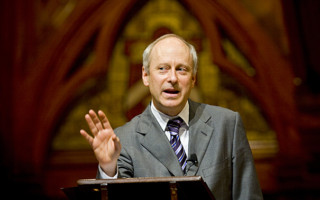
I’m a big fan of philosophy. I know a decent amount about it. How? I’ve listened to Arthur Holmes lecture for 81 hours on the history of philosophy. I’ve gone through John Searle’s 21-hour class on the philosophy of language. I’m currently listening to Daniel Bounevac’s still ongoing lectures on the analytic tradition. All on YouTube.
You probably know Kahn Academy, the free online education behemoth. You may have also heard of edX, which partners with leading universities to provide free online courses. These are part of a growing trend: they’re called MOOCs (Massive Open Online Course), and between the bunch of them, you have videos and courses on just about any topic you would study in college. Free.
What’s this got to do with Pressing the Button? While college is provided by as many “private” institutions as public, the industry can hardly be called private. Given the cost of university, state-funded financial aid is omnipresent. Any non-governmental institution that provides the same service for free is an important example of Pressing the Button.
A common conversation I have with folks who have not graduated college:
“Maybe I should go to college. But it’s so expensive. And the schedule is too much – you only get financial aid if you go full time.”
“Why don’t you just study using online videos? You avoid all those problems.”
“Huh? Yeah. I should go to college.”
When I press, the three main objections I hear are:
Videos aren’t enough.… Continue Reading



